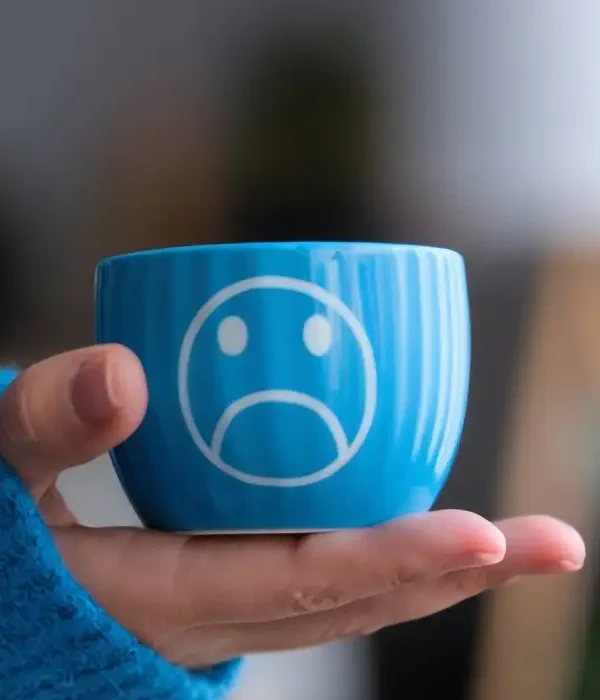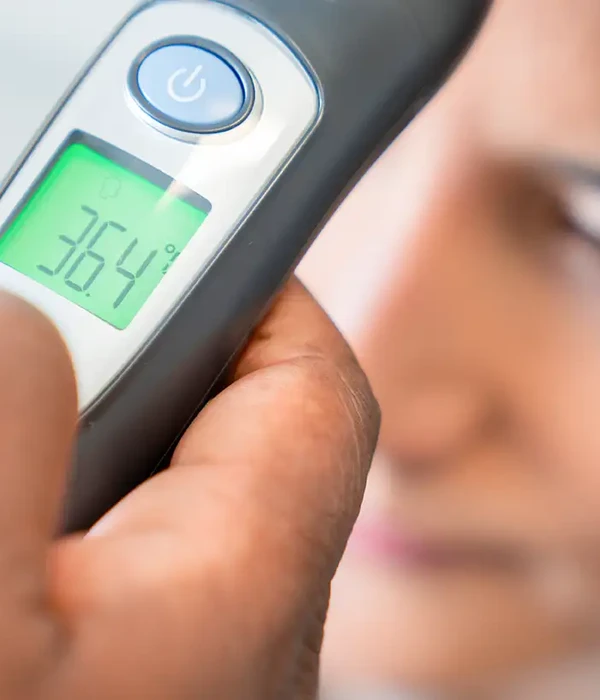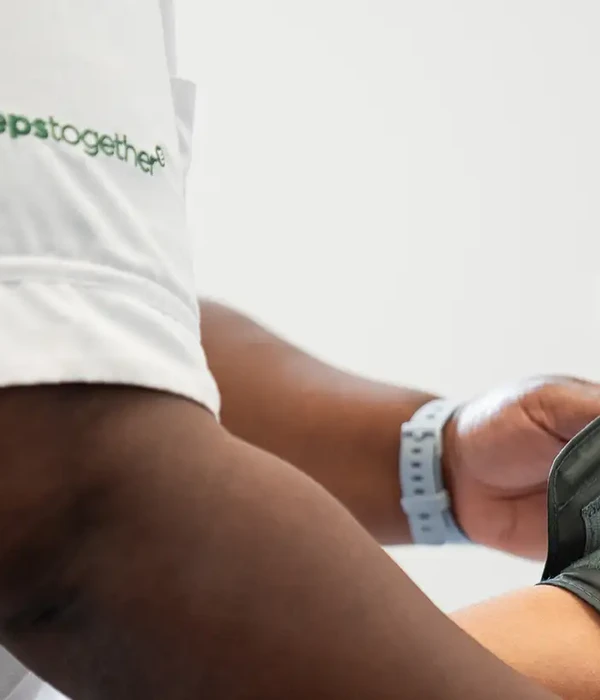Dual Diagnosis Treatment
Dual diagnosis treatment means you get help for both an addiction and mental health disorders at the same time. Living with both conditions can be challenging, as underlying mental health challenges can complicate addiction treatment. Effective dual diagnosis treatment typically involves therapy, support, and, in some cases, medication.
This combined approach has helped many individuals regain control over their lives and enhance their daily well-being. If you or someone you know struggles with both substance use and a co-occurring mental health disorder, learning about the care treatment providers offer can help get you started.

Take the First Step Towards Recovery
Steps Together offers personalised support and proven treatments, providing the care, guidance and encouragement you need to move forward with confidence and build a healthier future.

Understanding Dual Diagnosis
When addiction and mental health issues occur together, the challenges can feel overwhelming. This combination, known as dual diagnosis, means that the symptoms of one condition can fuel the other, creating a cycle that makes recovery more complicated without the right support.
Addiction treatment needs to target both issues because focusing on just one can often lead you back into old problems.
Prevalence and Statistics
It is common for mental health problems and addiction to occur together. Studies suggest that about half of people with a substance use disorder will also experience a mental illness at some point in life. Young adults and men are more likely to be affected, but dual diagnosis can impact anyone.
Research indicates that people with mental health problems, like depression or anxiety, will also deal with a substance use issue, and that people with a substance use disorder will likely have an underlying mental health concern. When you have a severe mental illness, like schizophrenia or bipolar disorder, the risk of addiction is higher.


Common Co-Occurring Disorders
Some of the most common mental health challenges that patients with dual diagnosis struggle with include depression, anxiety disorders, bipolar disorder, post-traumatic stress disorder (PTSD), and schizophrenia. Personality disorders are also often seen with substance abuse.
Alcohol, cannabis, cocaine, and prescription medications are substances most often involved in these co-occurring disorders. Symptoms of mental illness can become worse with substance use, making treatment challenging.
Dual Diagnosis Treatment Approaches
Dual diagnosis treatment helps you manage complex needs and lowers the risk of relapse or untreated symptoms. An effective treatment approach can help a person find lasting recovery from substance abuse problems.
Integrated Care and Treatment Models
A leading method for treating mental illness and substance addiction is the integrated approach. Here, mental health and addiction services combine to support you at every step. This model places you at the centre of care planning, ensuring that all aspects of your health are addressed.
You will work with a team of professionals, including therapists, addiction specialists, and medical doctors. Treatment programmes focus on tackling mental health and substance use together, instead of separately.
Therapeutic Interventions
You may take part in several types of therapy that address the causes of both substance abuse and mental health concerns. Therapies include Cognitive Behavioural Therapy (CBT), which helps you identify harmful thought patterns, and Dialectical Behaviour Therapy (DBT), which focuses on emotional regulation.
Family therapy can improve communication and support within your family. Art therapy and holistic therapies, such as mindfulness meditation, offer alternative ways to understand and manage your emotions.
Detoxification and Medication Management
Detoxification or detox is often the first step in rehab treatment if you are physically dependent on drugs or alcohol. A safe detox process is managed by healthcare staff to minimise withdrawal risks.
Medication management is another key element in professional treatment. Doctors may prescribe medicines to ease withdrawal, manage cravings, or treat your mental health diagnosis. Common examples include antidepressants, antipsychotics, or medication for anxiety.
Support Services and Aftercare
Ongoing support services make a big difference in your ability to stay well after treatment. Peer support and support groups, such as 12-step programmes or dual recovery groups, help you connect with others who understand the challenges of dual diagnosis.
Aftercare planning might include ongoing counselling, outpatient therapy, or linking you with local mental health services. Support networks and practical care, such as help with housing or employment, are also important.
Services that our multi-speciality addiction rehabilitation centres offer

Recovery and Long-Term Strategies
A dual diagnosis treatment plan focuses on both your mental health and substance use needs. Practical strategies, including a journey to recovery, long-term support, and a strong support network, increase the likelihood of sustained healing and stability.
Your recovery journey is ongoing and may include setbacks, but steady progress is possible with consistency. Maintaining progress often means following a personalised treatment plan and setting realistic goals. Regular check-ins with your healthcare provider help keep your plan up-to-date and effective.
Relapse Prevention and Coping Strategies
Relapse is a common challenge for many during recovery. To prevent relapse, you may practise daily routines that promote healthy habits and self-care. This can include sticking to a regular sleep schedule, eating balanced meals, and engaging in regular exercise.
Develop effective coping strategies, such as identifying triggers and learning how to manage cravings. Mindfulness, journaling, and breathing exercises are helpful techniques. Therapists often teach skills through cognitive behavioural therapy to help you stay focused and reduce negative thinking.

Causes and Risk Factors
Your genetics can strongly influence your chances of facing both mental health issues and substance misuse. If your family has a history of depression, anxiety, addiction, or other mental disorders, you may be at higher risk. Some genes can affect how your brain reacts to stress or drugs, making you more vulnerable.
Your environment, including where you grew up, your social circle, and what you experienced in childhood, can greatly affect your chances of developing dual diagnosis. Growing up in a household where drug or alcohol misuse is common or where there is poor mental health support increases your risk.
Stress and trauma have a direct impact on mental health and substance use. Chronic stress from finances, relationships, or school can increase your need to find ways to cope. Some people turn to drugs or alcohol as a way to manage stress, loneliness, or sadness.
Signs and Symptoms of Dual Diagnosis
Recognising the signs of co-occurring disorders early can lead to support and better outcomes. Common indicators include mood swings, anxiety, withdrawal from loved ones, changes in sleep or appetite, using substances to cope with emotions, and difficulty managing day-to-day responsibilities.
Behavioural and Emotional Indicators
You may notice significant mood swings, ranging from happiness to sadness or anger, with no apparent cause. Frequent mood changes are common in those dealing with both a mental health disorder and addiction.
Other red flags include withdrawing from friends and family or giving up activities you once enjoyed. You may notice changes in your sleep habits, such as sleeping much more or less than usual.
Impact on Daily Life
Living with a dual diagnosis can make day-to-day tasks very difficult. It can be hard to keep a job or stay in school. Relationships often become strained due to mood swings, unpredictable behaviour, or arguments about substance use.
Individuals with a dual diagnosis may find managing money can also be a challenge, with funds often going to fund drug or alcohol addiction over basic needs. You may find it challenging to maintain your hygiene and personal care.
Physical and Psychological Symptoms
Physical symptoms often include sudden weight loss or gain, red or bloodshot eyes, tremors, and frequent illnesses. Withdrawal symptoms, like sweating, shaking, nausea, or headaches, are frequent if you try to stop using alcohol or drugs on your own.
Psychological symptoms may show up as constant anxiety, panic attacks, or deep sadness. You may feel confused or struggle to focus. Depression, paranoia, or hallucinations can also be signs of dual diagnosis.

Mental Disorders and Addiction Can Be Treated
Living with addiction and a co-occurring mental health condition can be overwhelming, but Dual Diagnosis treatment offers a path forward. This integrated approach addresses both issues simultaneously, helping you or your loved one achieve lasting recovery and improved mental well-being.
At Steps Together, we understand that each person’s experience is unique, which is why we create personalised treatment plans that meet your specific needs. Our compassionate, professional team is here to support your long-term recovery.
Frequently Asked Questions
How is dual diagnosis typically identified?
You are usually assessed through a series of clinical interviews and questionnaires. Mental health professionals look for symptoms of both substance misuse and mental health issues, such as depression, anxiety, or psychosis. Sometimes, a diagnosis is made after observing how symptoms change with or without substance use.
Can dual diagnosis conditions be treated simultaneously?
Yes, both conditions can and should be treated simultaneously. Trying to address mental health symptoms without tackling substance misuse, or vice versa, often leads to poor outcomes. Modern programmes are designed to help you work on both problems together for better results.
How does dual diagnosis affect the prognosis of an individual?
Having both a mental health disorder and a substance use disorder can make recovery more difficult. You may face a higher risk of relapse and need more long-term support. However, with structured care and persistent effort, people improve their symptoms and quality of life.
What approaches are most effective in managing co-occurring disorders?
Integrated treatment plans are widely seen as the most effective method. This means you receive support for both your mental health disorder and substance use disorder at the same time. Treatments may include therapy, medication, and group support.
What challenges are associated with the treatment of dual diagnosis?
Treatment can be more complex than treating a single disorder. It may take longer to find the right combination of therapies. You might need to manage withdrawal symptoms, side effects from medications, or changes in your mental health as you start to recover.
What support systems are crucial for recovery from dual diagnosis?
Ongoing support from family, friends, and healthcare professionals is key. Access to specialised treatment services, peer support groups, and counselling can make a big difference. Programmes that focus on aftercare and community connections give you a better chance for lasting recovery.





